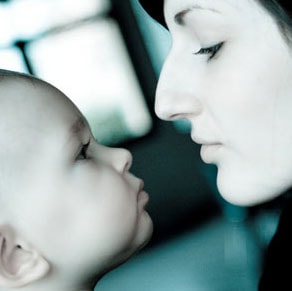Prevent diarrhea for babies in autumn and winter
Unlike summer, the weather in late autumn and early winter is cooler, but this is also the time when babies are most susceptible to diarrhea. To keep your baby healthy, parents should supplement some knowledge on how to prevent diarrhea this fall.

Autumn diarrhea is a general disease of the digestive tract, mostly occurring between August and December, with the peak of the disease between October and November. The symptoms of autumn diarrhea are sudden onset, most children with the disease often have a fever (body temperature up to 380C ~ 400C), mostly accompanied by respiratory infections (such as runny nose, sneezing, stuffy nose, cough, sore throat). Severe illness manifests as watery stools or nausea.
Diarrhea is caused by the immature development of the intestines of infants, weak enzyme activity, but high nutritional needs, and the burden of the intestines. The nervous system, endocrine system, circulatory system, and liver and kidney functions in the newborn period are still immature, the regulatory function is still poor, and the immune ability is also not mature, so infants are very susceptible to viral gastrointestinal infections, which lead to enteritis (which is also diarrhea during the transition from autumn to winter).
Here are some methods to help mothers prevent diseases for their babies:
Create good personal hygiene habits: Do not eat raw or cold food, eat cooked food, drink boiled water, wash your hands and feet, especially before eating and after using the toilet; when going out, you must pay attention to hygiene and food safety.
Sterilize dishes and chopsticks: Eaten utensils (cutting boards, scissors, blenders, containers) should be cleaned after use and sterilized before use.
Food storage: Food placed in the refrigerator should be kept in clean containers. It must be cooked thoroughly before eating.
Keep the air clean
Because the weather is starting to get cold, if you are afraid of the cold and close the windows tightly, causing the air in the house to not circulate, you can reduce the chance of infection by bacteria.
Do not go to hospitals with many patients, limit going to public places, minimize contact with people with diarrhea. Pay attention to exercise, improve physical fitness; ensure adequate sleep and nutrition, which helps prevent intestinal infections. Pay attention to keeping warm, dress your baby appropriately according to the change of weather.
When a child has diarrhea, it will cause the physical condition to decrease, which can lead to a lack of trace elements and reduced immunity. Diarrhea is a common disease in young children, if you do a good job of preventing the disease for your child, you can avoid the disease.
According to SK&DS-MD






